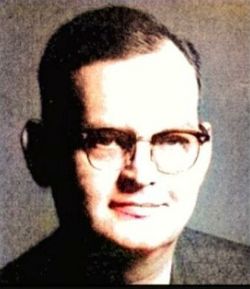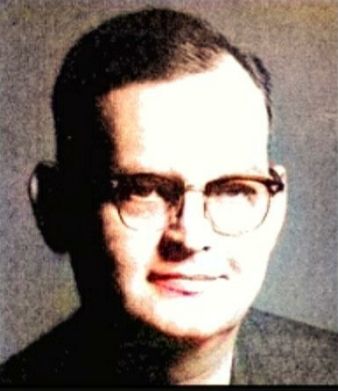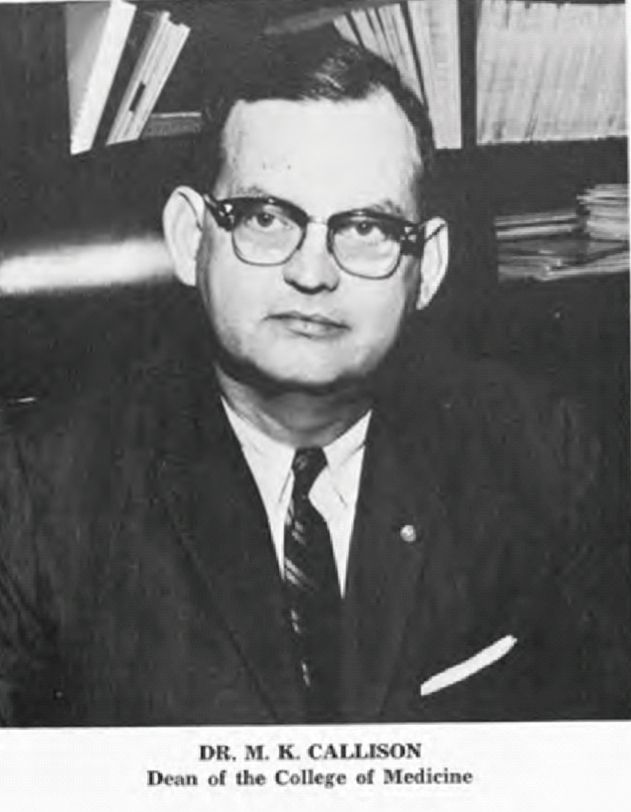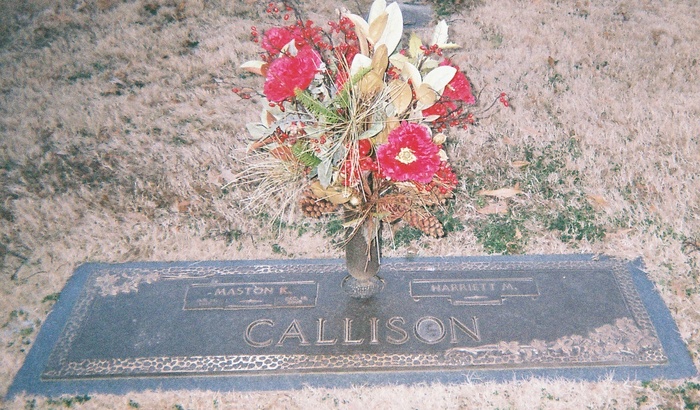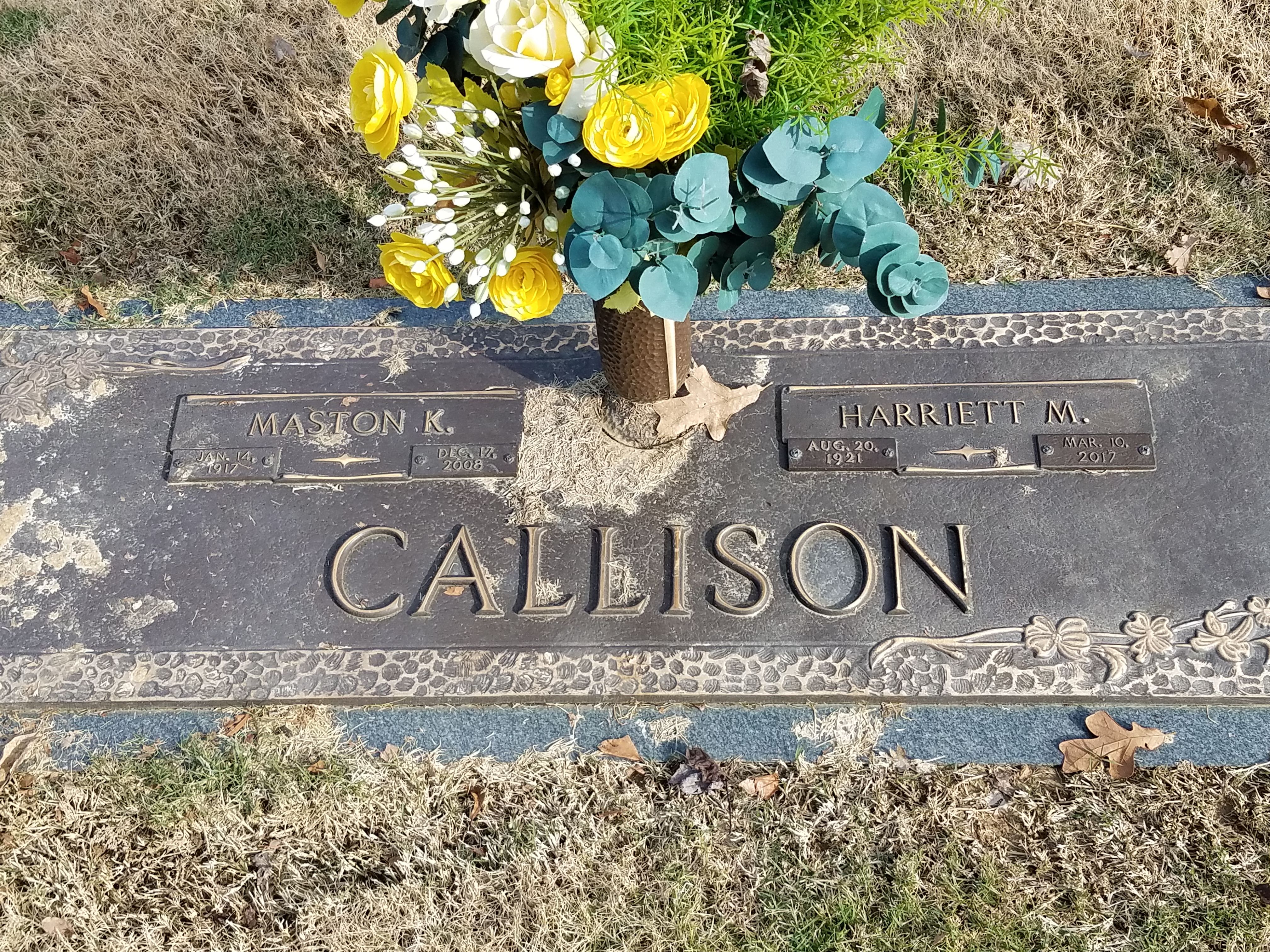Maston Kennerly Callison, MD, died at his home on Wednesday, December 17, 2008, at the age of 91, after a long and fulfilling life. As dean of the University of Tennessee College of Medicine from 1958 until 1970, he was credited with initiating changes that significantly enhanced the quality of teaching and research at the college. Among them was the establishment of a complement of full-time teaching faculty which itself developed training programs in medical and surgical specialties that received national endorsement and attention.
He was also a driving force behind the development of both the William F. Bowld Hospital as the university's primary teaching hospital and the James K. Dobbs Research Center, as well as the move of the Veterans Administration Hospital from its wartime Getwell location to the Medical Center where it could be better integrated into the teaching curriculum.
He conceptualized and helped to develop the Mid-South Medical Center Council, an organization designed
to coordinate the community's resources and its health needs. He was also a tireless worker for several community health-related agencies and governmental commissions. For his service to his community, Dr. Callison received a number of awards. Three of which he was proudest were the L.M. Graves Memorial Health Award for Outstanding Achievement in Community Health; the Distinguished Service Award from the Tennessee Medical Association; and the first Distinguished Service Award from the Tennessee Chapter of Alpha Omega Alpha, the national honor society for medical students, residents, and physicians, of which he was a member. From boyhood in Knoxville, Dr. Callison wanted to become a doctor and never wavered from that goal, ultimately graduating from the University of Tennessee College of Medicine in 1939. After a year of internship he completed a fellowship program at the University of Pennsylvania and returned to Memphis for residency training at the John Gaston Hospital, forerunner of today's The Med, where he served as chief resident before his deployment to the European theater. As a captain in the Army medical corps, he became assistant chief medical officer of the American hospital in Berlin after Germany fell and earned a commendation for his service. In 1947 Dr. Callison returned from Germany, established his private practice of internal medicine in Memphis and joined the faculty of the University of Tennessee College of Medicine.
Seven years later, he was appointed chairman of the medical board of the John Gaston Hospital. At the age of 41, he was called into the office of Dr. Hyman, then dean of the College of Medicine and vice-president of the Medical Units, and offered the deanship. With some trepidation he accepted, but only on the condition that he be permitted to continue practicing medicine after normal working hours, for he believed he could be a good medical school administrator only if he kept current in his field, and he also could not bring himself to entirely
abandon his profession and his patients. Dr. Hyman agreed but only if Dr. Callison turned over his practice income to the university, to avoid a conflict of interest. And, so, the deal was struck. After retiring as dean in 1970, he continued practicing internal medicine in Memphis for another 26 years, 49 years total, commonly putting in 75 hour weeks and making house calls until his retirement.
Maston Kennerly Callison, MD, died at his home on Wednesday, December 17, 2008, at the age of 91, after a long and fulfilling life. As dean of the University of Tennessee College of Medicine from 1958 until 1970, he was credited with initiating changes that significantly enhanced the quality of teaching and research at the college. Among them was the establishment of a complement of full-time teaching faculty which itself developed training programs in medical and surgical specialties that received national endorsement and attention.
He was also a driving force behind the development of both the William F. Bowld Hospital as the university's primary teaching hospital and the James K. Dobbs Research Center, as well as the move of the Veterans Administration Hospital from its wartime Getwell location to the Medical Center where it could be better integrated into the teaching curriculum.
He conceptualized and helped to develop the Mid-South Medical Center Council, an organization designed
to coordinate the community's resources and its health needs. He was also a tireless worker for several community health-related agencies and governmental commissions. For his service to his community, Dr. Callison received a number of awards. Three of which he was proudest were the L.M. Graves Memorial Health Award for Outstanding Achievement in Community Health; the Distinguished Service Award from the Tennessee Medical Association; and the first Distinguished Service Award from the Tennessee Chapter of Alpha Omega Alpha, the national honor society for medical students, residents, and physicians, of which he was a member. From boyhood in Knoxville, Dr. Callison wanted to become a doctor and never wavered from that goal, ultimately graduating from the University of Tennessee College of Medicine in 1939. After a year of internship he completed a fellowship program at the University of Pennsylvania and returned to Memphis for residency training at the John Gaston Hospital, forerunner of today's The Med, where he served as chief resident before his deployment to the European theater. As a captain in the Army medical corps, he became assistant chief medical officer of the American hospital in Berlin after Germany fell and earned a commendation for his service. In 1947 Dr. Callison returned from Germany, established his private practice of internal medicine in Memphis and joined the faculty of the University of Tennessee College of Medicine.
Seven years later, he was appointed chairman of the medical board of the John Gaston Hospital. At the age of 41, he was called into the office of Dr. Hyman, then dean of the College of Medicine and vice-president of the Medical Units, and offered the deanship. With some trepidation he accepted, but only on the condition that he be permitted to continue practicing medicine after normal working hours, for he believed he could be a good medical school administrator only if he kept current in his field, and he also could not bring himself to entirely
abandon his profession and his patients. Dr. Hyman agreed but only if Dr. Callison turned over his practice income to the university, to avoid a conflict of interest. And, so, the deal was struck. After retiring as dean in 1970, he continued practicing internal medicine in Memphis for another 26 years, 49 years total, commonly putting in 75 hour weeks and making house calls until his retirement.
Family Members
Sponsored by Ancestry
Advertisement
Advertisement
